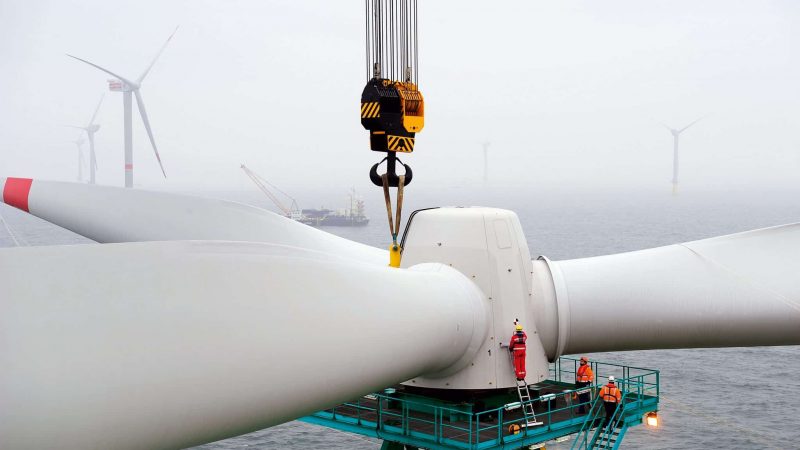During the last three years, IKEM and its partners engaged with stakeholders and conducted extensive research with a view to identify key obstacles and facilitators towards accelerated offshore wind-energy and hydrogen development in the Baltic Sea region. The findings of the BOWE2H project have now been published as a study and infographic poster and will be presented at the project’s closing event this Wednesday (18 September) in Berlin.
The Baltic Sea Region is well placed to become a paragon of green-energy innovation in the EU, said the project leaders Anika Nicolaas Ponder and Dàmir Belltheus Avdic: “Estimates for offshore wind-energy capacity in the Baltic Sea by 2050 go up to 100 GW, of which only three percent is currently being harnessed. Future offshore development will help to meet the growing demand for renewable energy, fulfil national and European climate targets and create an integrated green-energy market.”
The researchers concluded that green technologies like offshore-wind energy and power-to-hydrogen can be greatly optimised through transnational, region-wide planning: “To fulfil the potential of green energy in the Baltic Sea Region, all countries and stakeholders will need to work together closely. This will ensure that power production can meet demand, within and across borders as well as for power-to-hydrogen projects. It can also contribute to an efficient use of maritime space and an improved coordination of supply chains and labour needed for the planned projects. With best practices shared widely, this approach will build skills and bolster the region and the EU as a leader for green technologies.”
Based on the research, expert events and stakeholder interviews conducted during the project, BOWE2H has developed the following recommendations for different target groups:
- Policy makers should ensure clear and consistent long-term policies, harmonise national green-transition strategies, streamline regulations, and prioritise investment in hydrogen projects and grid expansion.
- Local authorities should engage local communities, provide transparent communication, makes sure that projects offer local economic incentives and foster cross-border cooperation.
- The energy industry should align projects with existing systems, encourage public-private partnerships, strengthen supply chains, and invest in workforce development.
- Grid operators should expand cross-border grids, ensure sufficient funding for infrastructure expansion, adopt smart grid technologies, and establish national hydrogen TSOs.
- Research institutes should focus on comprehensive energy-system studies and the analysis of socio-economic impacts and financing models.
The complete findings can be found in the BOWE2H Roadmap and the accompanying infographic poster. The BOWE2H closing event on 18 September 2024 will address the results, stakes and context of the project and discuss the next steps with stakeholders and experts from the Baltic Sea region.
BOWE2H (Baltic Offshore Wind Energy to Hydrogen) was a joint project of the Energy Agency for Southeast Sweden, the Latvian Association of Local and Regional Governments, the Lithuanian Energy Agency, the Polish Wind Energy Association, the German Foundation Offshore Wind Energy and IKEM. It was co-funded by the European Union through the Interreg Baltic Sea Region programme.










